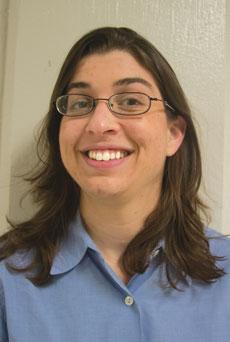BUCKLEY ON BOOKS

Amye Buckley – Executive Editor
Can you know, really know, the right answer to an important question in the blink of an eye? Malcolm Gladwell thinks you can and tries to explain how in his book Blink.
Blink is an introduction to the overwhelming database of information that endeavors to predict how humans respond, including the mental databases we each maintain. Gladwell tells the story of the science of intuition and where it fails us in an easy and convincing style and describes how what we say is not always what we think.
Gladwell attempts to deconstruct what makes a quick decision happen and why those decisions can be right, identifying them as a balancing act between the deliberate and the instinctive. Delving into the accuracy of initial responses he touches on art forgery, gambling, malpractice suits, marriage communication and the twist of a tennis player’s wrist in a quick tour that intertwines physiological responses with mental ones.
Gladwell discusses information overload and describes “thin slicing,” cutting through the mass of information and selecting a fraction of what is most important, as an important part of decision making. Gladwell asserts that people with expertise in a particular area are usually right instantly and will not make a better decision by extensive analysis.
Gladwell explains why the Pepsi Challenge works, and what it does not tell you about people’s drink preferences. He talks about speed dating and a study where students were asked to rate a person’s personality by looking at their room. He probes into the topic of prejudice and discusses not only race but the disproportional number of tall CEOs.
Blink is a light read. The studies Gladwell uses to back up his points have been converted to conversational discussions with each expert and supplemented by current events.
Through most of the book quick decisions are lauded. However Gladwell ends with a tale of police brutality and what can go wrong if the decision maker has not been primed to overcome extreme anxiety in split-second decisions. His last chapter almost seemed like an opening chapter from some other book that disputes his own findings.
A postscript explains Gladwell’s decision to start the book after finding himself prejudged based on his hairstyle. In this context the last chapter makes sense but is still rather disjointed from the smooth flow of the rest of the book.
If you pause to think about it Blink is really not a scholarly book, but pausing is what this book is all about.
Your donation will support the student journalists of Missouri Southern State University. Your contribution will allow us to purchase equipment and cover our annual website hosting costs.



























